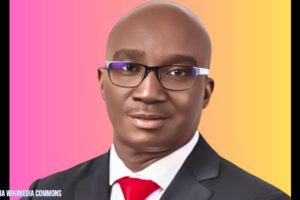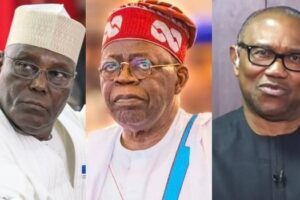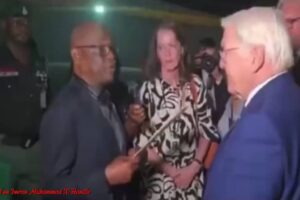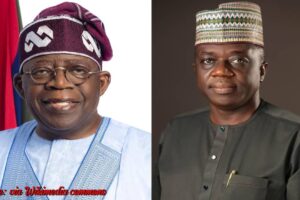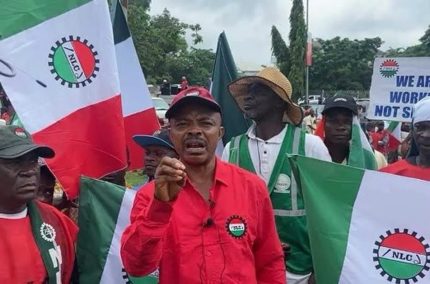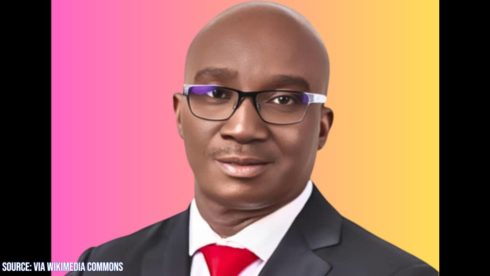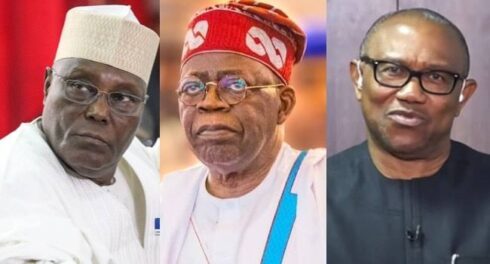The Nigeria Labour Congress (NLC), along with the Organised Private Sector (OPS), has condemned the latest fuel price hikes introduced by the Nigerian National Petroleum Company Limited (NNPCL). Retail stations across Nigeria have raised the pump price of Premium Motor Spirit (PMS), also known as petrol, with prices in Abuja now at N1,030 per litre, and in Lagos at N998 per litre. This increase has left many Nigerians outraged, with the NLC demanding an immediate reversal.
This marks the second price hike in a month, bringing the total increase since the current administration took office to over 430%. The latest adjustment has worsened the economic burden on citizens already grappling with rising costs of goods and services the NLC chairman fumes. At the heart of the controversy is the NNPCL’s decision to terminate its exclusive purchase agreement with Dangote Refinery, paving the way for other marketers to buy petrol on a “willing buyer, willing seller” basis, effectively ending any remaining subsidies.
Fuel Scarcity Resurfaces as Price Hits N1,300 per Litre in Some States
As fuel prices surge, long queues have reappeared at petrol stations in various states, including Abuja, Borno, Kwara, Edo, and Delta, with prices nearing N1,300 per litre in some locations. For example, petrol was sold at N1,250 per litre in parts of Borno State, while in Edo, the price ranged between N1,100 and N1,250. This price disparity has led to artificial scarcity in some areas as many stations remain shut, contributing to longer wait times for motorists.
In major cities, including Abuja, customers have expressed frustration over the erratic pricing and lack of transparency at NNPCL stations. Several customers reported that prices were not displayed on signboards or pump meters, with attendants only announcing the increased rates verbally. Meanwhile, transport fares have surged in response to the rising cost of petrol, with a trip from Lugbe to Wuse in Abuja increasing from N700 to N1,000, further deepening the financial strain on Nigerians.
NLC and OPS Condemn Fuel Price Hike, Call for Economic Blueprint
The Nigeria Labour Congress (NLC) has strongly criticized the latest petrol price hike, calling it an “aberration” and demanding an immediate reversal. NLC President Joe Ajaero accused the NNPCL of exploiting its position as a private entity to manipulate fuel prices, warning that the increase would deepen poverty and disrupt economic stability. The NLC Chairman urged the government to present a clear economic blueprint aimed at inclusive growth, rather than relying on ad hoc policies and palliative measures.
The Organised Private Sector (OPS) and Nigeria Labour Congress (NLC) had expressed concerns about the impact of rising fuel prices on production costs. Segun Ajayi-Kadir, Director-General of the Manufacturers Association of Nigeria (MAN), noted that the price hike would escalate the cost of production, leading to higher prices for locally produced goods. Ajayi-Kadir emphasized that small and medium-sized enterprises (SMEs) would particularly suffer, with many struggling to absorb the increased costs and potentially facing closures and job losses.
Economic Experts Warn of Inflationary Impact and Call for Policy Sequencing
Economists have warned that the latest petrol price hike will trigger further inflation and negatively impact businesses and households. Dr. Muda Yusuf, Director of the Centre for the Promotion of Private Enterprise, described the timing of the increase as “ill-timed” and urged the government to adopt a more measured approach to deregulation. He recommended policy sequencing, suggesting that relief measures, such as the proposed Economic Stabilisation Bill, should be implemented before further price increases.
Vincent Nwani, an economist and investment specialist, highlighted the frequency of fuel price hikes this year, warning of widespread inflationary pressures. He noted that the rising costs of petrol would inevitably increase transportation, logistics, and power generation expenses, further straining the economy. Nwani also called on the government to prioritize policies that ease economic pressures on citizens, while ensuring that businesses can maintain productivity and profitability amidst rising costs.
Table of Contents
Discover more from OGM News NG
Subscribe to get the latest posts sent to your email.

